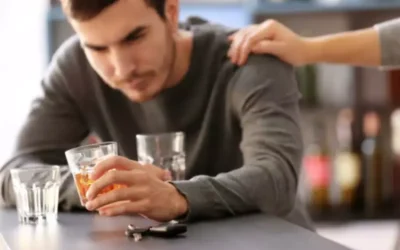Alcohol and diabetes: Effects, blood sugar levels, and guidelines
As ethanol levels rise, this phase is followed invariably by increasing drowsiness, clumsiness, and a decreasing level of consciousness. A highly intoxicated patient may become combative without realizing what is happening. Nausea and vomiting are common side effects of excess intoxication. Eventually, the patient will lose control of their airway, causing obstruction by the tongue or emesis. Furthermore, if you have been drinking heavily, there may be a risk of hypos for up to 16 hours (or even more) after you have stopped drinking. There is no need for people with diabetes to give up alcohol simply because of their diabetes.

Symptoms of Alcohol intoxication
- Drinking moderately in accord with the recommended guidelines, should definitely not be ruled out.
- Excessive alcohol intake during pregnancy is never a good idea, and the more alcohol you drink the greater the risk to your baby.
- “You need to know if your medications or any diabetes-related conditions you have could be seriously affected by alcohol consumption,” emphasizes Harris.
- Some medications are not suitable for use alongside alcohol consumption.
This allows us to eliminate alcohol and other toxic substances from our body. Too much alcohol consumption can overwhelm our liver and lead to feeling intoxicated. Alcohol gets a bad rap for a lot of reasons, but does it really raise your risk of diabetes? https://ecosoberhouse.com/ Nearly 1 in every 10 Americans develops diabetes, most of which is type 2 diabetes. Risk factors for type 2 diabetes include having a more sedentary lifestyle, being over age 45 and having a first-degree relative with the condition, among others.
- But some have more than 300 calories and 40 grams of carbs, so it’s not your best choice.
- You can check nutrition labels to avoid choosing kombucha products with added sugars.
- These risks include stillbirth, premature birth and foetal alcohol syndrome.
- It’s not uncommon for some people to mistake having a hypo for being drunk.
- If you really want to drink it, try an orange-flavored light fruit drink.
- If someone with diabetes chooses to drink alcohol, the ADA recommends limiting consumption to a moderate intake.
What do I need to be careful of when it comes to diabetes and alcohol?
It makes sense, then, that drinking could play a role in preventing and treating type 2 diabetes. You can have more of the zesty flavor with none of the sugar or carbs by adding a spoonful of finely grated ginger to a glass of seltzer water. Add a bit of your favorite zero-calorie sugar substitute, and enjoy. Few things beat a hot, fragrant cup of this when there’s a chill in the air and the leaves are turning colors. And though it may be farm-fresh, the cider packs the same amount of carbs per serving as plain-old apple juice grams per cup.
The 10 Best Types of Alcohol for People with Diabetes
However, that’s not to say that alcohol doesn’t have negative consequences when it comes to blood sugar management. Read on to explore the complex relationship between alcohol and blood sugar, and what you can do to prevent type 2 diabetes. can diabetics get drunk When deciding whether to drink with diabetes, you’ll need to determine whether you’ll be able to monitor your alcohol consumption and drink in moderation. That means no more than two drinks per day for men and one per day for women.
They should also check these levels at bedtime to ensure that they are stable before sleeping. For many people, the occasional glass of alcohol does not pose a problem. However, for people with diabetes, alcohol consumption can affect blood sugar levels.
In her spare time, you can find her enjoying all that Vermont has to offer with her family and her dog, Winston. If you or a loved one has been diagnosed with type 2 diabetes, join DiabetesTeam today. Over time, you’ll form a team of others who will be there to support you, no matter what. Certain signs and symptoms indicate that diabetes isn’t well-managed.
Other health risks
If you have a number of these drinks, you can expect to see a rise in blood sugar followed by a steady drop a number of hours later, often whilst asleep. People who take insulin, in particular, therefore need to be wary of hypoglycemia. The risk of hypoglycemia is why experts advise people with diabetes not to drink alcohol if their blood sugar is already low. If a person chooses to drink, they should always eat at the same time and include carbohydrates, such as fruits, vegetables, or grains, in their meal. So yes, you can still drink, but you need to be aware of how it can affect your body and how to manage this.
NHS Wales: Drakeford says alcohol not staff to blame for A&E waits – BBC
NHS Wales: Drakeford says alcohol not staff to blame for A&E waits.
Posted: Fri, 07 Jul 2023 07:00:00 GMT [source]
Other Risk Factors for Diabetes
- Drinking alcohol in high quantities regularly can cause an increase in blood pressure.
- Given that drinking can make you lose track of what you’re eating, calories (and pounds) can add up quickly.
- Even if you only rarely drink alcohol, talk with your healthcare provider about it so that he or she knows which medications are best for you.
- Being tipsy has another downside, making it easy to mix up your medications or to forget to take them entirely.
